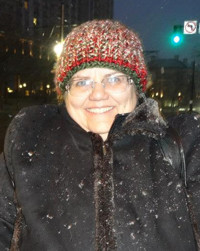 Continuing our cruise speaker profiles brings us to my good friend Helen Smith. Hailing from sunny, warm Queensland she got quite a culture shock when she headed to Salt Lake City earlier this year for RootsTech when it actually snowed (as the picture alongside shows).
Continuing our cruise speaker profiles brings us to my good friend Helen Smith. Hailing from sunny, warm Queensland she got quite a culture shock when she headed to Salt Lake City earlier this year for RootsTech when it actually snowed (as the picture alongside shows).
But we won’t have any snow on the cruise, and if we did, she probably wouldn’t notice, as she “lives” in the conference rooms for the entire cruise soaking up as much as she can.
With an amazing knowledge on so many aspects of genealogy, as well as an enthusiam that is contagious, Helen is one person that you must make sure you meet.
==================================================
NAME: Helen V. Smith
HOMETOWN/COUNTRY: Brisbane, Queensland Australia
DAYTIME JOB: Public Health Microbiologist and Molecular Epidemiologist
Q1. Think back to your childhood … now what is your favourite memory from that time?
Reading and learning. I have to admit I am a nerd and geek and loved school. My earliest memory is of grabbing my older brother when he got home from school, giving him the chalk and making him teach me what he had learnt that day! I loved curling up reading a book with my dog beside me and still do that today.
Q2. There’s always ‘something’ that sparks an interest in genealogy/history? What was it that sparked your interest?
My real addiction started when my mother wanted to know more about her grandfather, George Howard Busby, that she had never known due to a family split.
Q3. How old were you when you developed an interest in this hobby?
I had always had an interest in where I came from starting in early childhood as my father was born in England. He came to Australia in 1949 as a nine year old with his widowed mother. Her husband had died in the Second World War. I used to listen to my grandmother’s stories of a life that seemed so different to what I knew in Australia but I was 22 when I became fully addicted.
Q4. What countries across this big wide world did your ancestors come from?
England primarily with a smidgin of Irish and Welsh. My relatives went from England to a number of countries and a number emigrated to the USA from Australia. Of course with my One Name Study on Quested I chase them everywhere so have done some research in a variety of countries.
Q5. Is genealogy/history your main job?
No, my current main career is as a Public Health microbiologist and molecular epidemiologist. As a result I have always had a strong interest in medical history and the health of our ancestors and how this affected their lives and decisions made. I am working towards changing to a genealogy/history/lecturing/writing becoming my main job in a few years.
Q6. Do you have a genealogy mentor or idol? Someone who has deeply influenced you in your research along the way?
Don Steel’s book and research on the Honeycombe family started me the research path when I came across it in 1986. I have been very lucky as I have had a strong friendship with Judy Webster for very many years. Her meticulous attention to detail and research ability showed me the right way to do things from quite early in my research life. Shauna Hicks was another person who showed me the joys of archives and archival research early in my genealogical life.
There are so many good researchers that have influenced me over the years and many that still do as there is always something new to learn. The internet has made it easier to develop professional genealogical networks to talk and bounce ideas.
Q7. We all know that you family history can reveal some amazing things. Have any of your discoveries resulted in a life-changing experience?
Apart from my incurable addiction?
Q8. What do you find most challenging about research?
Finding the time to do everything I want, I need more hours in the day! I want to know the why and how of everything. Knowing what influences were occurring to make my ancestors choose the way they did is what makes family history engrossing to me.
Taxation and war are the two reasons my Rollason ancestors emigrated to Queensland. My Rollason family emigrated to Queensland for a better life because of the Cobden Treaty which removed tariffs on the import of silk ribbons but they were able to emigrate because of the US Civil War. No relationship you would suppose but because of the collapse of the silk ribbon trade in Coventry the people there were suffering extreme hardship in the early to mid 1860s.
At the same time the US Civil War occurred and cotton from the Southern US States was not able to be imported into England. The Lancashire cotton mill industry also collapsed. Their plight was reported in papers around the world. People in Queensland raised money to help their Lancashire brethren. The Queensland government agreed to a humanitarian immigration scheme and would provide free passage to Lancashire cotton weavers and the money raised by Queenslanders would be used to kit-out the passengers. There did not appear to be the numbers of immigrants in Lancashire that wanted to start a whole new life (perhaps hoping that things would improve very quickly without needing to go to the other side of the world?) so the Coventry Board of Guardians approached the Queensland agent about them paying the kit-out fee and the Government, the passage and the Government agreed. And it is that delving into the why and how that is so much fun!
Q9. If you had a time-machine what relative (past, present or future) would you most like to meet?
I would have to say George Howard Busby. He was quite a character, was in the Moreton Regiment, went off to the Boer War and joined a South African Unit (probably because he was too young to join a Queensland contingent), was wounded at Gallipoli and came back in 1916 and was a Recruiting Sergeant for the rest of the war. He was very active in what has become the RSL. Was in the Fire Brigade and Ambulance Brigades, was a Press Photographer who photographed the Prince of Wales on his visit in the 1920s, a Justice of the Peace and somewhere in all that was also supposed to be in the New Guinea Police and he was the reason I became addicted to family history research!
Q10. Still using that time machine, you’ve been propelled into the future five years, what do you see yourself doing?
A lot more of what I am currently doing and moving towards genealogy as a more full-time career.
Q11. What value do you think social media plays in genealogy these days?
Social media/Internet has opened the world but is not the only thing of value to genealogy and you can’t do it all on the Internet. It is a tool that gives us the ability to be in contact with people from anywhere who have internet access (maybe in my lifetime all the world will be wealthy enough to have this privilege!) and this allows us to be a global community but remember that you do need to talk to all your relatives as no-one knows what can happen and it is too late when they have died.
We have the access to so much knowledge among the wider genealogical community and so many learning opportunities available.
We also have the ability to give back to the genealogical world by helping in so many ways using social media/internet whether this is by helping another researcher, indexing for FamilySearch, your family history society or maybe transcribing for the National Library or your State library such as the new Queensland State Library PitchIn! program (http://www.slq.qld.gov.au/about-us/pitch-in) . We can do these things as volunteers no matter the time of day or whether we can spare five minutes or five hours.
Q12. What do you do when you aren’t doing genealogy or history?
Apart from the mundane parts of life, such as working full-time, cooking, cleaning and maintaining four acres, I spend playing with my German Shepherd, Shannon, lots of reading of course and writing.
Q13. What do you hope to get out of a genealogy cruise?
I always learn something new from both the presenters and the people attending. I love immersing myself in family history, helping other people, hearing other peoples’ research wins and working on ways to make people’s stopping points in their research change to full speed ahead.
Q14. Share with us a few (up to five) of the genealogy websites that you tend to spend the most time on?
I use all the paid websites (Findmypast, Ancestry, MyHeritage, Origins etc) and of course the wonderful free site Family Search and the ever expanding Trove but I’m not going to mention them further as part of my five. Instead I am going to mention some of the other sites:
Internet Archive (http://archive.org/index.php) is a fantastic resource of digitised books, (tip: search on parish registers) and is being added to constantly.
Oxfordshire Family History Society: if you have ancestors in this area this is a fantastic society to join. They have done many transcriptions over the years and some, particularly their Wills database is available free on the web. These are transcriptions of Oxfordshire wills and indexed names of everyone mentioned. http://wills.oxfordshirefhs.org.uk/
If you have ancestors in Kent then you have to look at the Kent Archaeological Society website http://www.kentarchaeology.org.uk/
For Queensland research you have to look at http://www.textqueensland.com.au/ which has a wide range of digitised sources. What is even more wonderful on the site are a number of academic theses written on Queensland history ranging from history of Bundaberg to Bands in Queensland to Streetscapes of Manly.
The other site I use is LostCousins: http://www.lostcousins.com/ . It is a great site to link up with relatives because you are matched on family entries in the census. You enter details of your family from the census and your relatives would also enters details from the census and so are matched.
Q15. Do you have any wise words for those just starting out in genealogy?
Talk to all your family members before it is too late! Get the family stories while you can and get the photos identified. Knowing that Great-Uncle George always smoked a particular brand of pipe tobacco, that he wore a red scarf throughout the year for luck, that he had a fantastic singing voice and liked to sing ballads to his wife. These are the things that bring him to life. You still need to determine the facts but can always fill in the names and date detail later,
Invest in a notebook so you don’t have “lost back of envelope” syndrome. There are lots of places that can teach good research practice eg. sourcing your information etc. but most of all enjoy your research. It is a wonderful, addicting passion that can bring great joy, sadness when you hear of early deaths and you have the chance to meet your ancestors.
=================================================
For those of you who are going on the 4th cruise, here is a list of topics that Helen is expected to be speaking on, based on the current Program:
– Using timelines as a research tool
– MyHeritage for online trees
– Document Analysis
– Kent Research
BE SURE TO CHECK OUT HELEN’S BLOGS
From Helen V Smith’s Keyboard – http://helenvsmithresearch.blogspot.com.au
Historical Medical Miscellany – http://historicalmedical.blogspot.com
Kent Research – http://kentresearch.blogspot.com
Quested One Name Study – http://questedonenamestudy.blogspot.com
Postcards From Mary – http://postcardsfrommary.blogspot.com.au
AND YOU CAN ALSO FIND HELEN ON …
Twitter – https://twitter.com/HVSresearch
Google+ – https://plus.google.com/u/2/110745513616700651492/
LinkedIn – http://au.linkedin.com/pub/helen-smith/28/280/972


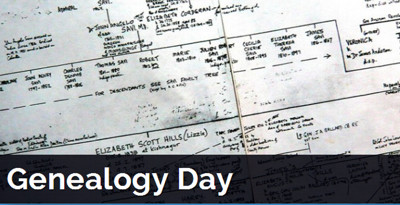
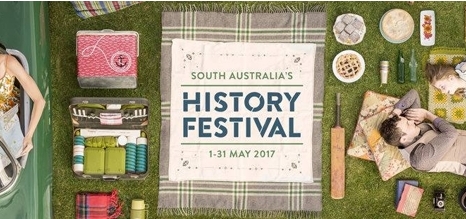
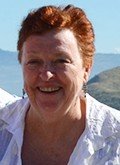
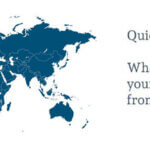
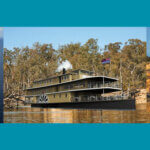
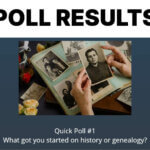
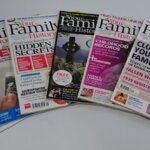
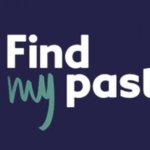
I don’t often have time to read blogs, and I certainly didn’t expect to read anything like that lovely compliment from Helen. Thanks! 🙂